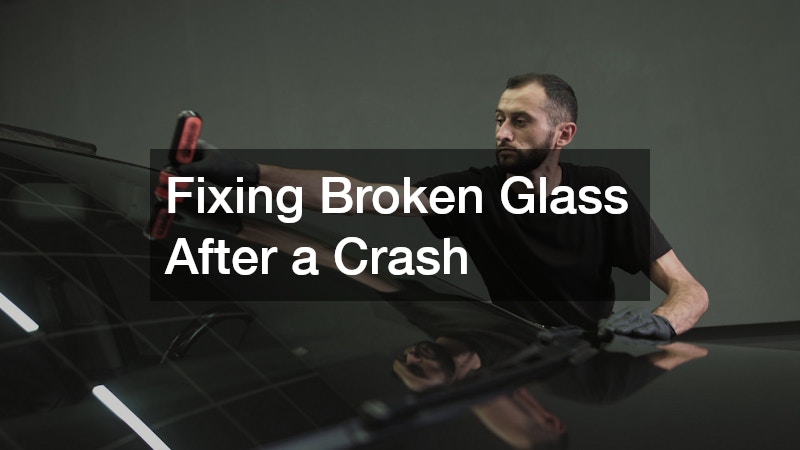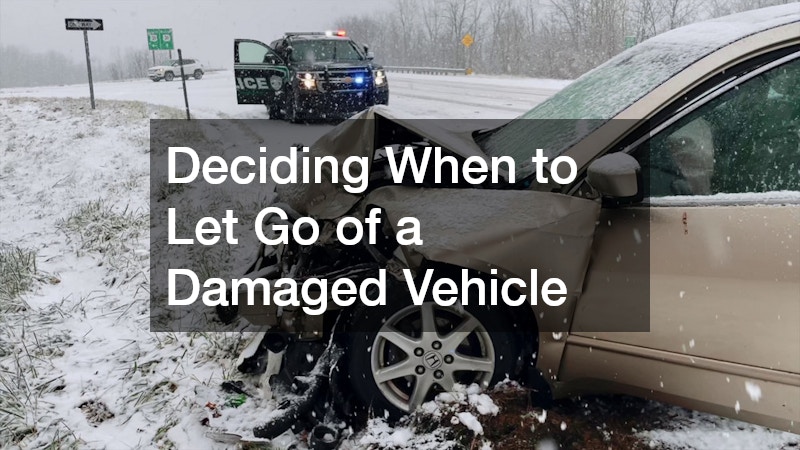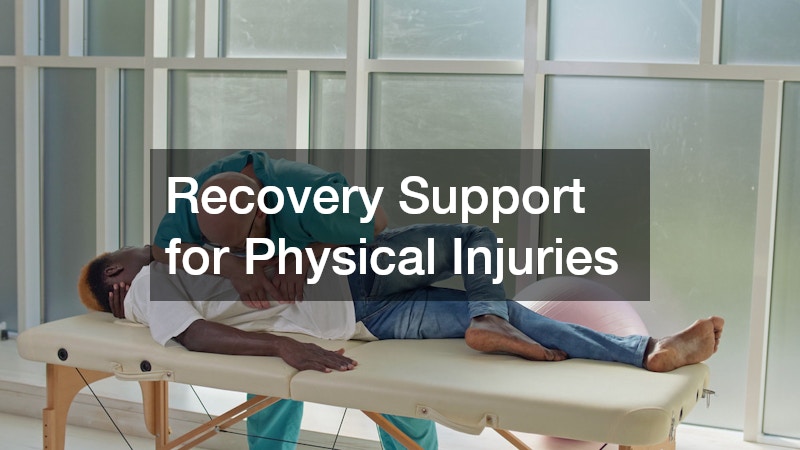An automobile accident can be a life-altering event, leaving individuals not only with physical injuries but also with numerous practical challenges to address. While each automobile accident case is unique, the steps following a collision are crucial in determining the outcomes of both personal recovery and financial compensation. The aftermath of a car crash is a convoluted process involving insurance claims, vehicle recovery, legal evaluations, and potentially even health and psychological support. Understanding this landscape is essential for navigating the post-accident terrain effectively. For most people, the complexity begins with insurance companies, as they are the primary financial agents that step in once an accident occurs. Their role can be confusing, especially when determining liability and coverages based on your particular circumstances. Adding to the complexity is the necessity of quickly assessing car damage, from dents and broken glass to more severe mechanical failures. The decision to repair or replace a vehicle is influenced by numerous factors – the cost versus the car’s remaining value, potential impact on insurance rates, and even the sentimental attachment to the vehicle itself. Moreover, insurance policies often come with a myriad of clauses that need a thorough understanding to ensure the rightful claims are made. Beyond the vehicle itself, the personal component of recovery, which could involve medical treatment and psychological support, can be daunting. Personal injuries may require specialized attention such as that provided by a personal injury lawyer or chiropractic care for nagging physical issues. Legal representation becomes vital when liability issues grow complex or severe injuries are involved, underscoring the importance of knowing when to seek professional legal help. This article aims to provide a comprehensive guide to navigating the tumultuous period following a car accident, centrally focusing on the key decisions in automobile accident cases while integrating advice on dealing with practical constraints and optimizing outcomes in terms of both recovery and finances.
- Immediate Actions to Take After a Collision
- Getting Your Vehicle Off the Scene Quickly
- When Legal Help Becomes Necessary
- Fixing Broken Glass After a Crash
- Addressing Minor and Major Body Damage
- Dealing With Overall Mechanical and Cosmetic Repairs
- Deciding When to Let Go of a Damaged Vehicle
- Understanding Your Policy and Claim Options
- Legal Representation for Complex Injury or Liability Issues
- Recovery Support for Physical Injuries
Immediate Actions to Take After a Collision

Immediately following an automobile accident, the first step is to ensure everyone’s safety at the scene. This involves checking for injuries and calling emergency services if necessary. Ensuring that medical attention is given promptly can be pivotal in automobile accident cases, affecting both personal health and future legal considerations.
Once immediate safety is secured, documenting the scene becomes crucial. Taking photos, noting down environmental conditions, and gathering witness statements can provide solid evidence for insurance claims. This documentation is vital as it influences the decision-making process of both insurance companies and legal entities involved in accident cases.
Another significant step post-collision is informing your insurance company about the accident. This is often required within a specific time frame and is essential for initiating any claim process. A timely report ensures that the insurance agency can start assessing the situation promptly, a critical factor in smoothing out car accident cases.
In addition, exchanging contact and insurance details with the other parties involved is necessary. Staying calm and cooperative during this process helps prevent miscommunication and ensures a more accurate account of the event is recorded, which can be beneficial during claims or legal proceedings.
Getting Your Vehicle Off the Scene Quickly
After establishing safety and documenting the incident, moving your vehicle off the road is often a necessary next step. Utilizing a 24 hour towing service can be especially useful in such scenarios, as these services are equipped to handle cars in varying conditions. Quick removal of the vehicle not only aids traffic flow but also minimizes secondary accidents on heavily trafficked routes.
A 24-hour towing service ensures that vehicles involved in car accidents are promptly transferred to a secure location for evaluation or repair. This step is aligned with both legal and safety guidelines, which often dictate swift clearance of accident sites. Securing a timely tow also prevents potential additional damage that might occur if a vehicle remains at the accident site overnight.
For insurance purposes, swift towing may also be beneficial. The sooner a car is assessed post-accident, the quicker the insurance company can proceed with claim evaluations. Therefore, knowing and using reliable towing services is an essential part of managing accident cases effectively.
When Legal Help Becomes Necessary
There are instances in automobile accident cases when legal intervention becomes essential. Engaging a personal injury lawyer can be the turning point in handling complex liability issues. They bring expertise in navigating the legal systems, ensuring that your rights are upheld and that you receive fair compensation.
Particularly in cases where injuries result in significant medical expenses or extended recovery times, a personal injury lawyer is invaluable. They advocate on the victim’s behalf, tackling the intricate details of insurance policies and liability claims. Their knowledge and expertise can significantly impact the outcome of an automobile accident case.
Moreover, legal assistance can streamline communications between you and the insurance agency. Lawyers ensure that all procedures are meticulously followed, lessening the burden on the victim. Thus, having a robust legal advocate can be indispensable when navigating the stormy waters of any automobile accident case.
In addition, personal injury lawyers can help gather expert medical opinions, negotiate medical liens, and even prepare for litigation if a fair settlement cannot be reached. Their ability to anticipate and address potential legal challenges ensures a more secure and confident recovery journey for accident victims.
Fixing Broken Glass After a Crash

Broken glass is a common aftermath of automobile collision cases and often requires immediate attention. Local auto glass repair services provide rapid solutions, ensuring that windows and windshields are restored to optimal conditions. Such services are crucial in maintaining vehicle safety post-accident.
Choosing a reputable auto glass repair service helps not only with the aesthetic aspects but also compliance with road safety regulations. Properly fitted glass enhances structural integrity during subsequent impacts, a significant consideration in accident cases. Therefore, investing in quality repairs is imperative for safe future driving.
Insurance companies often have partnerships with certain auto glass repair services, which can facilitate smoother insurance claims. Knowing which repair services are covered under your policy can save time and resources in the handling of accident cases. This knowledge allows for efficient progress in post-accident recovery plans.
Addressing Minor and Major Body Damage
Post-collision assessments often reveal varying degrees of vehicular body damage. From minor dents to major structural harm, addressing these is key for vehicle safety and aesthetics. Utilizing a skilled dent repair service can effectively manage minor damage, restoring a vehicle’s pre-accident appearance.
Skilled technicians use advanced tools for dent repairs that minimize the resale value depreciation of your car. This aspect is critical because car accidents can have long-term financial implications if vehicle values drop significantly. Therefore, addressing cosmetic defects expediently is financially prudent.
Beyond immediate repairs, body damage considerations are vital when filing insurance claims. Insurance company assessments determine coverage and payouts, making it essential to have damage accurately documented and estimated. These evaluations often guide the repair strategies in accidents, steering decisions on reparations or replacements.
Dealing With Overall Mechanical and Cosmetic Repairs
The complexity of automobile accident cases is often magnified when addressing comprehensive repairs. Auto repairs can range from fixing minor scratches to complete mechanical overhauls, depending on the severity of the collision. Prioritizing these repairs ensures the vehicle functions safely and efficiently post-accident.
Choosing an appropriate repair service hinges on the quality and reputation of the provider. Reputable facilities provide trustworthy evaluations and reliable repairs, ensuring vehicles meet safety standards. Such facilities are often linked through insurance agencies, streamlining the interaction between provider and policyholder.
The economic aspect of repairs is generally substantial, influencing decisions about keeping or selling damaged cars. Understanding what is covered under your insurance policy aids in strategizing repair options without excessive out-of-pocket costs. Optimizing these decisions is central to financially efficient solutions in automobile accident cases.
Deciding When to Let Go of a Damaged Vehicle

Automobile accident cases can often lead to the difficult decision of whether to repair or scrap a vehicle. It is crucial to evaluate the financial implications, such as repair costs versus the car’s current value. This evaluation often dictates whether selling the car for cash is a reasonable option.
Weighing repair expenses against the estimated insurance payout involves careful consideration. In some cases, extensive damage may render repairs uneconomical, prompting the decision to sell. This is where options to exchange cars for cash become relevant, serving as a viable alternative in accident cases.
The decision to let go of a vehicle also carries an emotional component, which can be challenging to overcome. While practical evaluations drive the decision, sentimental value may complicate the choice. Therefore, balancing practical and emotional considerations is vital for resolving car accidents.
Understanding Your Policy and Claim Options
Comprehending the intricacies of your insurance policy is vital when dealing with automobile accident cases. Policies differ widely, with various inclusions, exclusions, and conditions impacting your claim options. Understanding these details ensures that insurance benefits are maximized post-accident.
Engaging with your insurance agency proactively aids comprehension of your coverages and claim options. They provide valuable insights into what procedures must be followed and what documentation is required. This interaction can simplify the daunting process of filing and managing claims in accident cases.
It’s important to be aware of all potential claim avenues, including collision coverage, personal injury protection, and liability insurance. Having a complete picture of your policy equips you for dealing with subsequent insurance company negotiations. Thus, thorough understanding is paramount in mapping effective resolutions for car accidents.
Legal Representation for Complex Injury or Liability Issues
When injuries or liabilities become complex in an accident case, securing the services of an accident lawyer becomes integral. They provide support in unraveling the convoluted aspects of legal claims. Their expertise ensures that victims receive appropriate compensation and fair treatment.
An accident lawyer is instrumental in presenting and negotiating claims related to automobile accidents. They offer invaluable assistance in documenting injury causes and calculating associated costs. This support simplifies interactions with insurance companies, giving you a firm foundation in legal proceedings.
Complex injury or liability cases benefit greatly from expert legal interpretation of accident circumstances. A lawyer’s involvement assures that all legal angles are explored, often resulting in improved claims settlements. Having professional legal guidance is crucial for favorable resolutions in accident cases.
Additionally, accident lawyers can help manage medical documentation, coordinate expert witnesses, and handle courtroom procedures when necessary. Their strategic oversight can make a significant difference in case outcomes.
Recovery Support for Physical Injuries

Physical recovery is a significant aspect of dealing with automobile accident cases. Recovering from injuries requires personalized care to attain a full and healthy recovery. A car accident chiropractor offers specialized treatments tailored to address accident-induced physical discomfort or trauma.
Engaging a car accident chiropractor can be beneficial for treating soreness, muscle pain, or more significant spinal issues post-collision. Their therapies facilitate recovery by realigning the musculoskeletal system. Such services are often covered by insurance, which can be a financial relief in the recovery process.
Physical recovery support extends beyond traditional medical treatment, thus considering chiropractic care can accelerate healing. This option is particularly pertinent for whiplash or back injuries commonly associated with automobile accident cases. Effective chiropractic care improves long-term well-being, ultimately aiding comprehensive recovery.
Navigating the aftermath of an automobile accident is a multifaceted endeavor requiring informed decisions at every stage. From immediate actions to protracted legal and physical recuperations, understanding each aspect is key to fair and efficient resolutions. Whether dealing with insurance company dynamics, pursuing 24-hour towing services, or seeking professional legal help, the guide lays a comprehensive foundation for managing and optimizing outcomes in automobile accident cases.
The process doesn’t end with filing a report or making a claim—it often involves coordinating repairs, assessing physical injuries, and determining whether your vehicle is worth fixing or selling for cash. It also means understanding your policy through your insurance agency, locating local auto glass or dent repair professionals, and potentially working with a chiropractor to aid in recovery. Each step demands attention to detail to avoid delays, minimize stress, and secure proper compensation.
